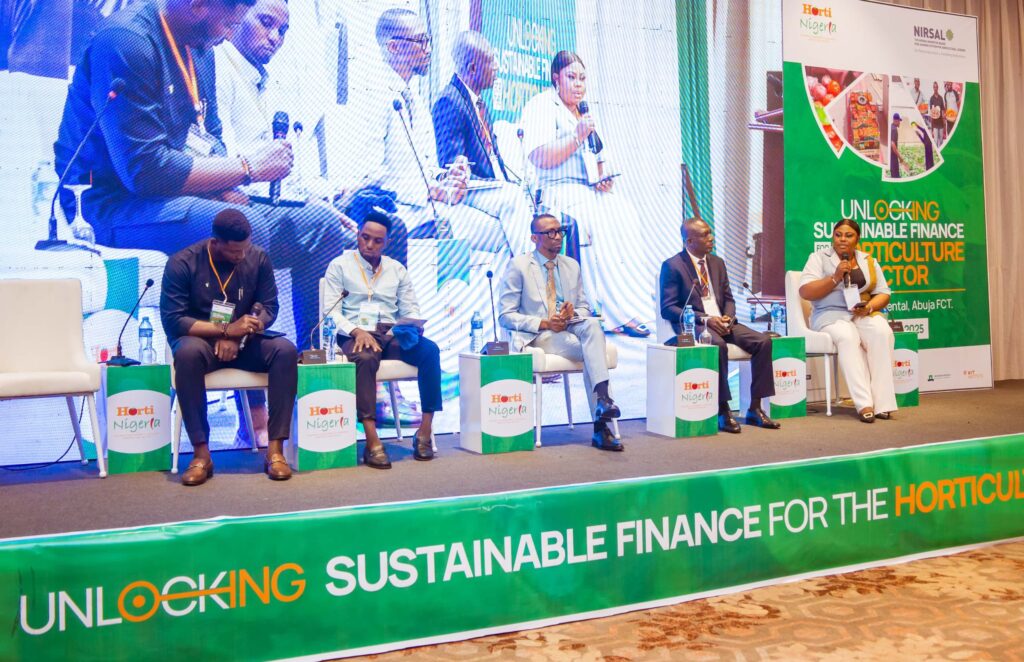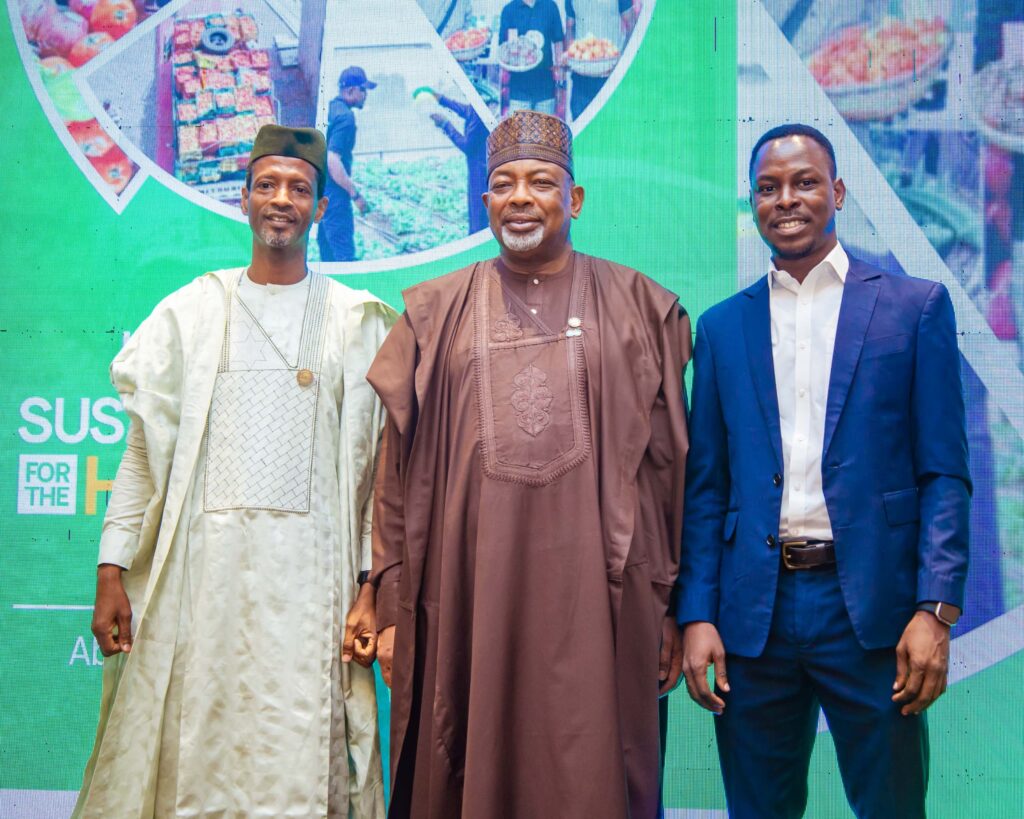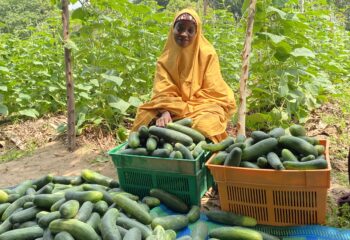
Nigeria’s horticulture sector represents high economic potential, yet it remains underfunded. In a strategic move to unlock valuable investment in the sector, HortiNigeria partnered with the Nigeria Incentive-Based Risk Sharing System for Agricultural Lending (NIRSAL) to hold a four-day capacity-building workshop in May for financial institutions in Abuja.
The event, entitled “Unlocking Sustainable Finance for the Horticulture Sector,” brought together key stakeholders from finance, government, development agencies, and agribusiness to address one of the sector’s most significant constraints: limited access to finance.
“For financial institutions to move from risk aversion to investment, they must understand the horticulture value chain – its systems, risks, and opportunities.”
Yusuf Dramani, IFDC Nigeria Country Director
Despite the immense potential of Nigeria’s horticulture sector to boost food and nutrition security, generate employment, and drive inclusion and rural development, the sector faces a financing gap estimated to be between 440 and 660 billion Nigerian naira ($273,758,760 to $410,638,140). Surprisingly, only 4% of bank lending reaches the agriculture sector. To bridge this gap, HortiNigeria organized the country’s first dedicated workshop for financial institutions focused on horticulture financing.
During the opening ceremony, Honorable Minister of Agriculture and Food Security Senator Abubakar Kyari delivered the keynote address, stressing the need for reform and innovation in agricultural financing and calling on banks to map the full horticulture value chain from seedling production to export and to design tailored products such as seasonal loans, equipment leasing, and trade finance.
“Horticulture is a high-impact, high-return subsector crucial to food security and job creation,” Kyari declared.
Representing the Embassy of the Kingdom of the Netherlands in Nigeria, Policy Advisor on Food Security and Climate Foluso Adejoro highlighted growing Dutch private sector interest in Nigeria’s horticulture and potato value chains.
Noting the prudence of financing horticulture efforts, he observed, “Innovations like protected horticulture have increased yields by up to 200% in the southwest. Companies like East-West Seed and Bakker Brothers are already making investments.”

In his welcome remarks, IFDC Nigeria Country Director Yusuf Dramani described the workshop as both timely and strategic.
“For financial institutions to move from risk aversion to investment, they must understand the horticulture value chain – its systems, risks, and opportunities,” he noted.
Reaffirming , Dramani’s sentiment, HortiNigeria Program Director Mohammed Salasi Idris emphasized the need for a mindset shift within the financial sector.
“Financing agriculture has always been challenging; horticulture is often seen as even riskier. But with the right knowledge and tools, it becomes a profitable opportunity,” he explained. “This workshop is designed to help banks better understand the sector and finance it with confidence.”
NIRSAL representative Ibrahim Abdullahi, Group Head, Value Chain Optimization emphasized the need for strategic investment through risk management tools and tailored financial products.
“Agriculture contributes nearly 24% to Nigeria’s GDP but receives just 4% of bank lending. This imbalance must be corrected,” he asserted.

Ibrahim went on to outline NIRSAL’s instruments, such as credit risk guarantees and value chain mapping, noting that NIRSAL had facilitated more than 1.23 trillion Nigerian naira ($808,832,700) in agricultural financing in the first quarter of 2025 alone.
A panel discussion featuring speakers from First City Monument Bank (FCMB), LAPO Microfinance Bank, NIRSAL, and agribusinesses, such as Eupepsia Place Limited (also known as Soilless Farm Lab), examined innovations in agri-financing and strategies to de-risk horticulture investments.
The workshop concluded with a recognition of the valuable contributions of key partners, whose support and collaboration advanced sustainable finance solutions in the horticulture sector, including Sterling Bank, LAPO Microfinance Bank, Sytiamo Limited, and FCMB.
As momentum builds, continued collaboration will be key to transforming Nigeria’s horticulture sector into a thriving contributor to national food security and economic growth.
The HortiNigeria program (2021-2025), funded by the Embassy of the Kingdom of the Netherlands in Nigeria, aims to facilitate the development of a sustainable and inclusive horticulture sector that contributes to food and nutrition security in Nigeria. HortiNigeria is led by IFDC and implemented together with KIT Institute, Wageningen University and Research, and East-West Seed Knowledge Transfer Foundation.





